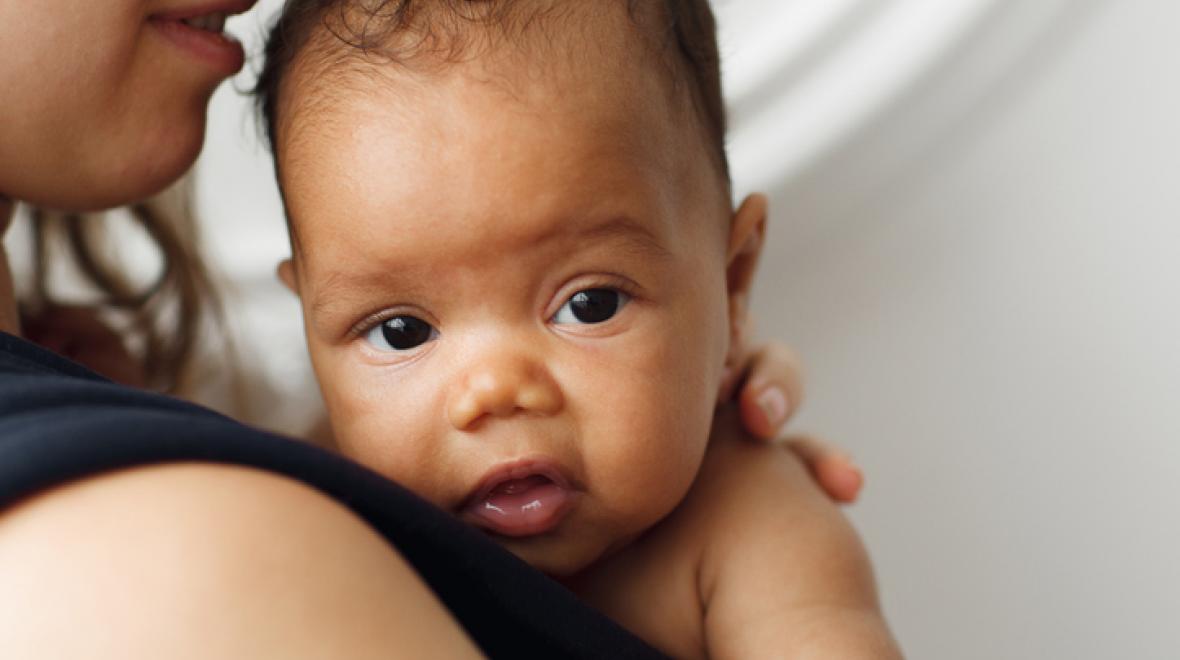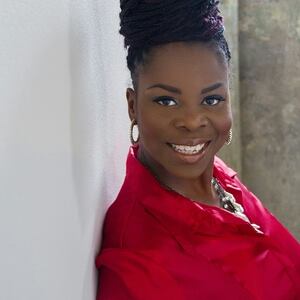

Nikia Lawson is a doula with a mission. As doula, doula trainer, childbirth educator and owner of Birth Blessings Professional Birth Services, she spends her days empowering women to have gentle, healthy birth experiences.
She is also dedicated to encouraging more women of color to enter the profession, which helps increase access to doula care for mothers of color, which can result in better birth outcomes. In an era when the maternal mortality rate is on the rise, especially for women of color, many expectant mothers are concerned about what will happen to them during their birth process. Luckily, Nikia Lawson and her peers are on the ground floor making conditions better for mothers.
Lawson, who is based in Forth Worth, Texas, is a DONA International-certified birth doula, a DONA International Doula of Color Trainer Fellow and birth doula trainer who has trained more than 50 doulas. She has taught childbirth education classes for community groups and hospitals since 2007; and has a bachelor’s of social work degree and a master’s degree in counseling.
Lawson is a true leader and example for doulas that are women of color. I was fortunate enough to ask her about her past, present and future in the birth industry.
For readers who aren't familiar with doulas, what is the role of a doula during birth?
In layman's terms, a doula is a nonclinical support that guides the expectant family through their birth journey as varying stages and assists the family to navigate the process so they can have an empowered, satisfying birth experience.
How long have you been a doula?
I've been a doula for 21 years. My first birth was supporting my sister with her son (now 21 years old on Christmas day) and she told me then, that birth support was my calling.
I never really intended to become a birth doula when I thought about a career or profession. My goal was to become an electrical engineer. I had set myself up for that profession since like third grade and that's a whole ‘nother story!
After supporting my sister at her birth, I really just kind of got a feel for it (birth doula support) and wanted to be more involved in being in the delivery room with moms; but I didn't want to become a nurse. I really liked the idea of just being there (in the delivery room) to support a mom. When I started out, I didn't even understand what the word doula was at the time. I had done some research afterwards to find out a little bit more about the type of care I was already providing to family and friends.
What is your favorite part of being a doula?
I truly enjoy seeing a woman trust her body and know that she was divinely designed to give birth to her baby. To be a part of the experience and overcoming their fear to come out so glorious, so beautiful, so empowered and transition into a wonderful connection to motherhood ... it's priceless!
What do you see in terms of representation of women of color (W.O.C.) and what goals do they have for assisting their communities?
Women of color in the birth community is really shifting. There are more women of color and culture seeking the opportunity to get the birth skills training needed to be effective in creating change and changing birth outcomes in those marginalized environments.
That particular dynamic has changed over the last 30 years since the profession has been in existence as an industry and a revenue source. Now, birth workers of color are seeking to support marginalized, disadvantaged, disproportionately affected communities that have adverse birth outcomes.
The goal is to really help a family that is marginalized, disproportionately affected, perhaps high risk, and [therefore] less likely to have the proper support and education needed to really navigate the medical system, be it private or public medical support, and have an empowered birth. Birth workers of color have found ourselves in a position to really educate and shift the final birth outcomes of the expectant woman, who pretty much looks like us, who have experiences similar to ours and we primarily understand the situations that our expectant mothers face.
Birth workers of color have found ourselves in a position to really educate and shift the final birth outcomes of the expectant woman
Are those numbers increasing at all?
Yes. There are so many facets of birth skills training available to women of color and culture. There are also more options for how they want to support birthing families.
Also, supporting the LGBTQ community is now becoming a topic of conversation. We recognize that these families are not necessarily getting the access and information and education in mainstream healthcare.
As you know, the maternal mortality rate is on the rise for women of color. What can we do to combat this issue?
Continuing to educate moms about their options for their childbirth experience. It is important that we educate moms from a preconception health perspective, from a prenatal perspective, a labor and delivery perspective, and postpartum perspective so that overall health and wellness is their priority.
We see those vulnerable moms having the greatest challenges with survival after a delivery during the immediate postpartum and early postpartum period (first 3 to 6 months).
What are some of the toughest things you have witnessed as a doula?
There have been many situations that have truly tested my resolve as a doula.
I have had one very intense situation where an infant was born with a very shallow breathing pattern. The baby was literally clinging to life and this teenage mother was trying to really connect with her baby who was born, immediately rushed for resuscitation and then whisked away to the NICU.
I had another birth experience where the resident doctor in training was assisting with the delivery of the placenta and it led to a teenage mom hemorrhaging after her birth.
There have been challenging experiences with the health care system and the judgments that are made on moms that have social issues that impact pregnancy. One mom was a substance abuser who could have benefited from doula care. The nurses opted not to reach out to me, the delivery team opted to sedate her during her birth, and she wasn't given an opportunity to have a dignified birth experience simply because she was a substance abuser.
How long do you plan to be a doula?
Birth work requires so much physical interaction — [it] takes a toll on the body. I can't see myself being a birth doula in my sixties and whatnot... LOL.
I will continue training birth workers and coaching them to stay abreast of what is going on in business online and offline because I have such a love for the work I do in the birth community.
What’s next for you?
The opportunity to travel and see birth happen in indigenous cultural environments. My dream is to live abroad for three to six months experiencing birth in the traditional sense of each culture that I embrace.
Hopefully, in the next two to three years, the opportunity to travel and see birth in indigenous places globally will become my new normal.











